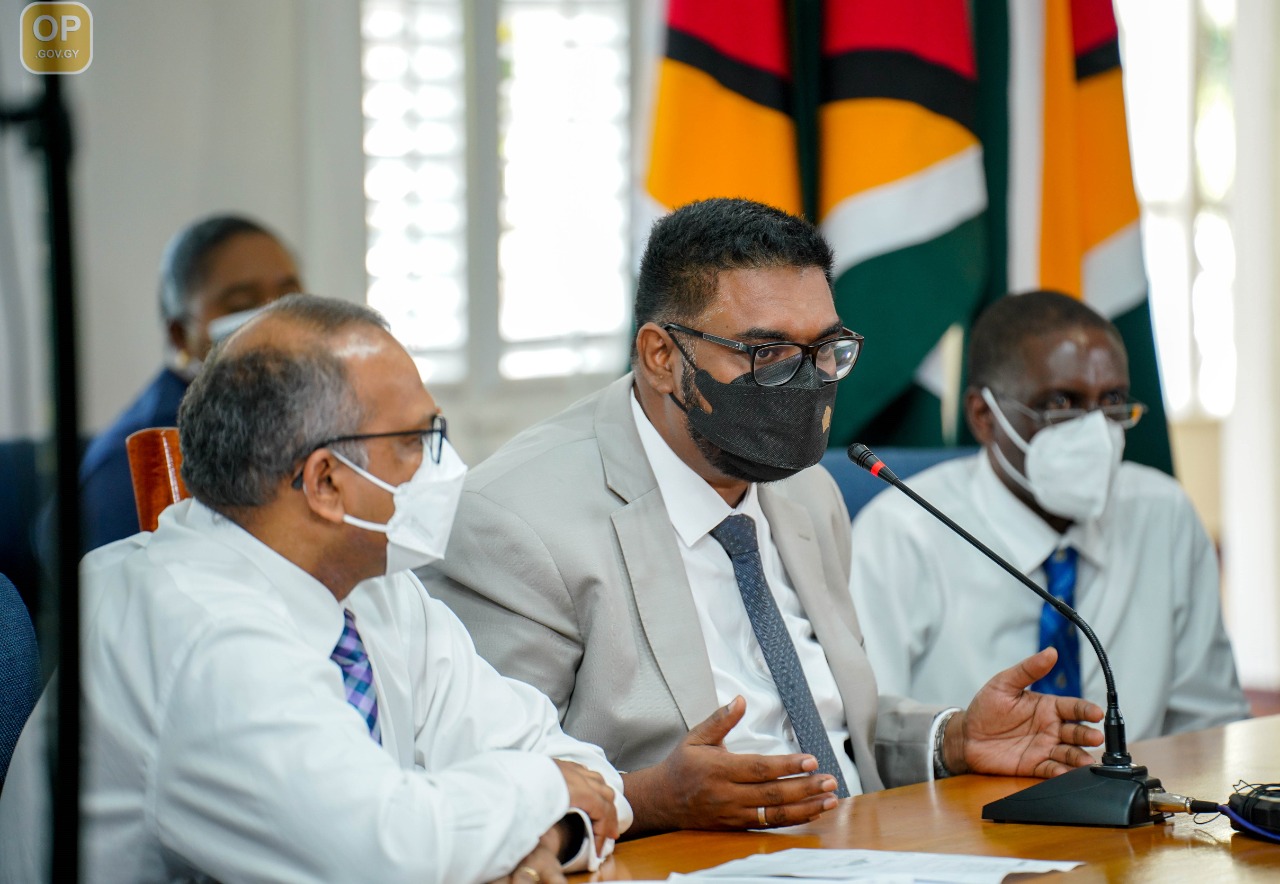
There have been concerns raised about reopening of schools amid a surge in the number of people infected with COVID-19 but President Dr. Irfaan Ali has emphasised that schools cannot be kept closed.
“All the data so far and most countries, almost all the countries are saying we cannot close the schools, we cannot close the education system,” the Head-of-State said during an emergency press conference on Wednesday.
This press conference was held after Guyana recorded a record 779 new COVID-19 infections in just one day. The day before, the country recorded 485 cases in just one day.
This surge has already had an impact on healthcare delivery with numerous individuals who work at health facilities across the country testing positive. And amid this surge, schools reopened for face-to-face classes for many children on Monday.
For some children, like those in Grade Six who are preparing to sit the high-stakes National Grade Six Assessment (NGSA) later this year, it meant a return after nearly two years of online learning.
The President acknowledged the prevailing health situation but emphasised that protecting people (including children) from the COVID surge must be balanced with the crucial need to have children return to schools.
That crucial need has been well- ventilated over the past few months. A recent report from the World Bank noted that student engagement has been low in Guyana, leading to concerns of learning losses.
The report stated that these learning losses and dropout rates have “grave implications” for the accumulation of human capital in countries.
And previously, Representative of the World Bank Ricardo Habalian estimated that school children in Guyana could lose about one year of learning because of the closure of schools for face-to-face classes prompted by the COVID-19 pandemic. This, Habalian said, could lead to significant challenges for the children in the future.
Similarly, UNICEF representative Nicolas Pron had posited that children could be affected by significant learning losses if they did not return to schools, due to challenges in internet connectivity and accessing online classes.
Cognisant of this, President Ali reasoned, “(There are) many moving parts that have to be managed and the best possible decision in a balanced way is what has to be pursued.”
While local authorities work towards controlling the surge in cases- attributed to the new Omicron coronavirus variant- Dr. Ali championed the adolescent vaccination campaign, urging all teenagers aged 12 to 17 years old to get vaccinated.
He also pointed out that there must be a heightened level of personal protection with each individual wearing their mask, avoiding large gatherings, maintaining an appropriate social distance and constant sanitisation.
Minister of Education Priya Manickchand has announced that the reopening of schools would be accompanied by a concerted effort to maintain the necessary COVID-19 guidelines to protect children.
Since schools have been reopened, some concerns have been raised about the preparedness of schools and whether some teachers have been infected. Manickchand, via a post on her Facebook page, has committed that her ministry will address these issues when they arise at the schools.





